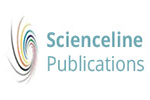(2019) A review on the role of lipid in selected apicomplexan, anaerobic, kinetoplastid and intestinal parasitic infections. World’s Veterinary Journal. pp. 129-134. ISSN 2322455X (ISSN)
|
Text
WVJ 9(2) 129-134, June 25, 2019.pdf - Published Version Download (306kB) |
Abstract
Lipids are a diverse class of biomolecules that play a major role as energy source, membrane components and cellular signaling molecules. Because of the variation in modes of life, different parasites can partly or fully utilized significant amount lipids during infection. The aims of this paper were to provide an overview to the role of lipids in selected apicomplexan, anaerobic, kinetoplastid and intestinal parasitic infections. Lipid particles are fundamentally engaged in host-pathogen interactions like cell signaling and immunity. As a sources of eicosanoid production, they are involved in different aspects of innate signaling and antigen presentation for the host organism. For the pathogen, lipid droplets also employed to facilitate attachment, empowering pathogenesis and used to subvert host metabolism as ways of immune evasion. The apicomplexan parasites utilized lipid particles for various purpose including changing permeability and fragility of host cells, support the insertion of parasite into the host cell membrane, and promote growth, invasion and optimal replication of the organism. In anaerobic groups of parasites, the lipid plays a considerable role as growth promoter, increasing virulence, facilitate encystation and vesicle formation as well as initiation of immune system and maturation of dendritic cells. Kinetoplastid also engaged in the uptake of essential lipid particles to produce more complex lipids, develop protective mechanisms against host innate and adaptive immunity and support pathogen survival. The lipid bodies also utilized by the intestinal parasites for disease pathogenesis, differentiation and survival of larvae in the host tissue. This review showed that the different in vivo and in vitro studies indicated that lipids have different role in different stage of the parasites infection. The associations between parasites and the lipids were observed during the attachment, invasion and other stages of parasitic infection. So far, evidences in lipid profile alteration related to different parasitic infection suggested that parasites are able to remodel/metabolize host lipids during the overall pathogenesis of parasitic infection.
| Item Type: | Article |
|---|---|
| Keywords: | Infection, Lipid, Parasitic, Role |
| Subjects: | Q Science > Q Science (General) S Agriculture > SF Animal culture |
| Divisions: | World's Veterinary Journal (WVJ) |
| Page Range: | pp. 129-134 |
| Journal or Publication Title: | World’s Veterinary Journal |
| Journal Index: | Scopus |
| Volume: | 9 |
| Number: | 2 |
| Publisher: | Scienceline Publication, Ltd |
| Identification Number: | https://doi.org/10.36380/SCIL.2019.WVJ17 |
| ISSN: | 2322455X (ISSN) |
| Depositing User: | Dr. Alireza Sadeghi |
| URI: | http://eprints.science-line.com/id/eprint/340 |
Actions (login required)
 |
View Item |

